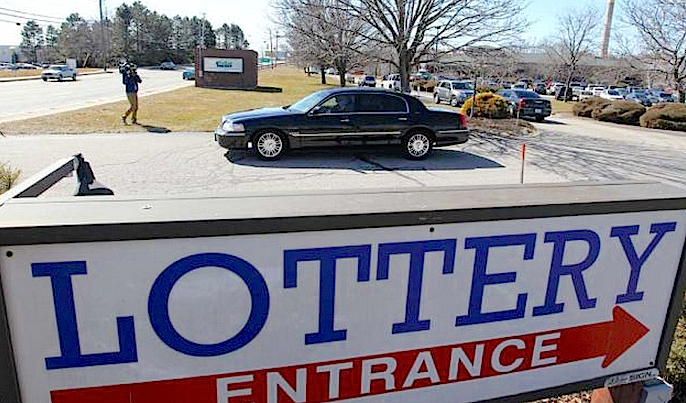The 7 scariest situations you'll never believe could happen when you win the lottery
/Model Tara O'Farrell poses with a stack of cash representing a $5 Million lottery jackpot. PHOTO: Independant I.E
What happens if you win big on Saturday? That leaves two days before you can get into the lottery headquarters to present your ticket and collect your monster check when they open Monday morning.

You can't put the ticket into a safe deposit box because the banks are closed. So how do you keep it secure?
That's just one of the problems you could face, and this kind of scenario often goes through the minds of many winners.
So they sleep with the ticket under their pillow. Others will put it in the fridge, thinking this will be the last place a burglar would look. Sorry - skilled burglars are far brighter than you realize!

Martyn and Kay Tott missed out on US$5 million after losing their ticket. FULL STORY
There are many other questions that winners wonder about. So here are the top 7 issues you may face before and after winning - with some suggestions for avoiding the problems:
1. You might lose your ticket.
You might also lose your prize money. To claim your prize you must present your actual winning ticket, not a copy. Even a photocopy is unlikely to get accepted by the lottery organization. Without your ticket, there is no proof of ownership, and this means you won't be able to collect at all.
So the first step is to sign your ticket. By signing, it acts as strong security against someone else trying to claim your prize if your ticket is lost or stolen. Uusually your money is gone for good unless you have the physical ticket, so take care.

This shop owner stole the £156,000 winning ticket when a pensioner took it to see if they had won. PHOTO: The Telegraph
2. Your ticket might get stolen.
The obvious answer is not to tell anyone until you receive the check from the lottery organization. You can protect it first by signing it with your name and address. Washington's Lottery explains on their website:
"Like currency or dollar bills, Lottery tickets are 'bearer instruments' in that the holder of the ticket is the owner, unless the ticket is signed. By signing the back of your Lottery ticket, you make the ticket officially 'yours'. Only the person whose name matches the signature on the ticket may claim its winnings."
3. You're asked to share proceeds from a ticket given as a gift.
There have been many cases where a lotto ticket was given as a gift, and the giver received nothing back in return. Since the prize is seen as 'found' money - money that cost little to obtain - so there will always be resentment that the giver didn't receive any part of the winnings. Why not split it with them? Even a 90/10 split will go a long way to keeping the friendship.
Twenty members of the same New Jersey family shared a Pick Six $20 million prize. PHOTO: USA Today
4. Your family makes claims on the prize.
As in (3), if you worry about your family or friends arguing about claiming a portion of the prize, then why not split the money up equally among all the family?

Lewis Howard waited five and a half months before he claimed his $99 million prize. He only had two weeks left to claim, as Virginia's time is 180 days - almost 6 months.
5. You miss the ticket expiry deadline.
Lottery tickets do expire up to 12 months after the draw, so you need to check the dates on the back of the ticket. If you miss the deadline, you're unlikely to get your prize, and many court battles by winners have been lost.
6. You get discovered after winning.
The USA Powerball website says you can't remain anonymous when you win one of their big prizes, and many other games have similar rules.
Their website says: "All but five states (DE, KS, MD, ND, OH) have laws that require the lottery to release the name and city of residence to anyone who asks. Other states may offer to assist you in some way, including such things as the creation of trusts. But generally, you may wish to hire an attorney to review the laws in your state to see what options you might have. Photos and press conferences are up to you for most, but not all states. Check with your state lottery to see if photos or more are required."
Check out your own lottery website for its policy on keeping your name out of the media. It's worthwhile staying under cover for as long as you can.

Ira Curry moved out of her home after she won $120 million in Mega Millions in 2013. PHOTO: Daily News
7. You get begging letters you can't refuse.
Conceal your winning amount so you don't receive them, or move house. Or ignore the letters. There's no secret to avoiding these letters except by not receiving them in the first place.
RELATED: You've Won The Lottery. Now Here's How To Disappear From The Internet In Just 9 Steps







































